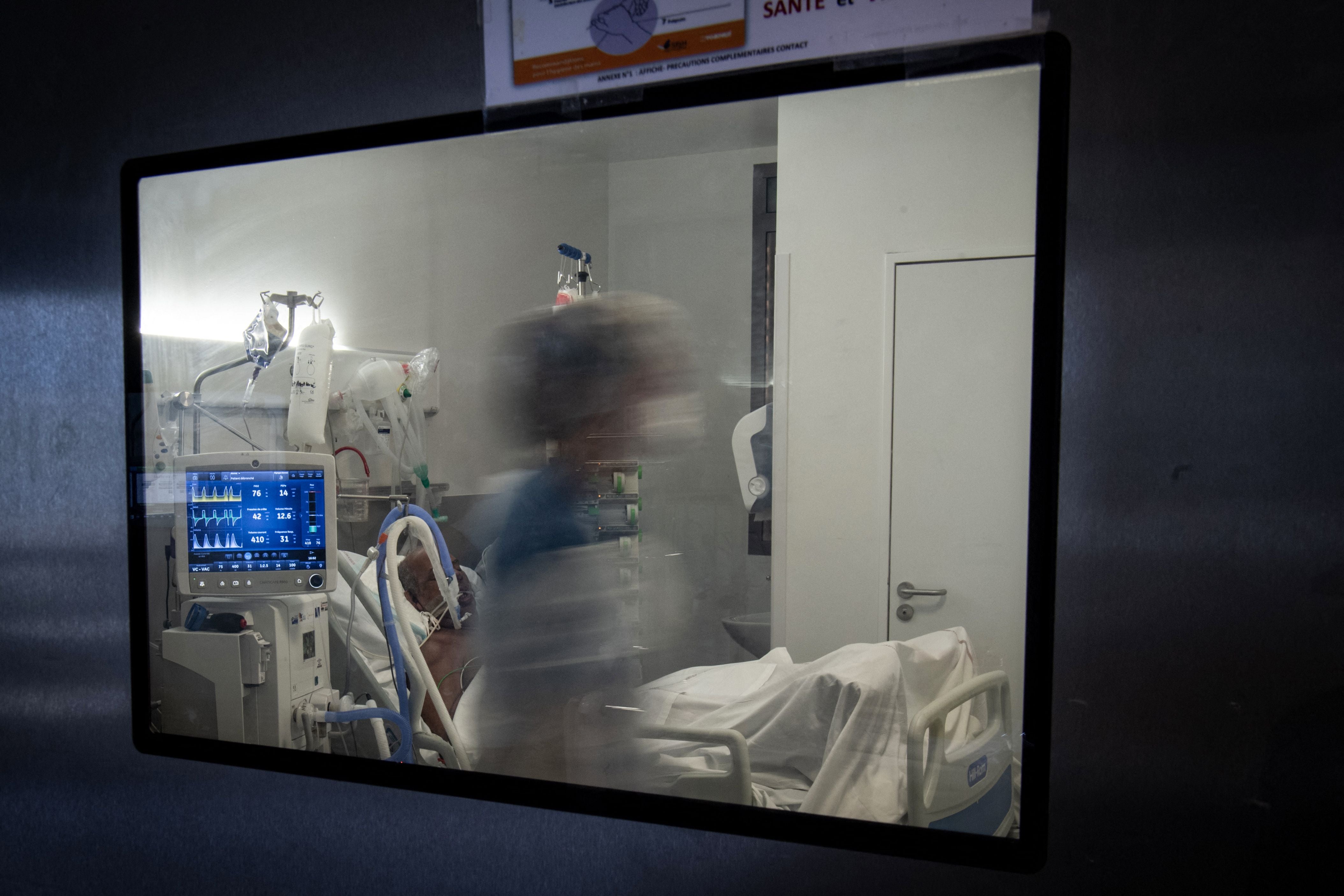230,000 new cases of post traumatic stress disorder after Covid pandemic, estimates suggest
Fearing a huge surge in virus-linked mental health struggles, psychiatrists are launching a new information service, reports Jon Sharman

Psychiatrists fear nearly a quarter of a million new patients may need treatment for post-traumatic stress linked to the coronavirus pandemic over the next two years.
Experts have particular concerns about people who have survived severe Covid-19 in hospital as well as health workers, they said.
Announcing a new information resource for anyone who thinks they may be suffering from trauma-related mental health problems, the Royal College of Psychiatrists (RCP) pointed to modelling published by the NHS suggesting that between 2020-21 and 2022-23, some 230,000 referrals would be made for post-traumatic stress disorder (PTSD).
PTSD is an anxiety condition in which “intense negative emotions, thoughts and memories caused by a traumatic event persist and interfere with someone’s daily life”, the RCP said. Covid-19 has created many more situations in which more people could have been exposed to these potentially traumatic events.
Research revealing the number of potential new PTSD patients was published by the NHS Strategy Unit in November last year.
Overall, experts predicted “1.8 million new presentations, recurrences or exacerbations of mental ill health across England as a direct or indirect result of the pandemic” for the period described – a surge in demand of 33 per cent compared to a typical year.
Professor Neil Greenberg, of the Royal College of Psychiatrists and who edited its new resources for patients, said PTSD could be debilitating not only for sufferers but for their friends and families. He also urged people to recognise the “common misunderstanding” that it afflicted only members of the armed forces.
He said: “Clearly there are jobs, including working in many healthcare settings, where experiencing traumatic events is more common so the risk of developing PTSD is unfortunately much higher.
“It’s vital that anyone exposed to traumatic events is properly supported at work and home. Early and effective support can reduce the likelihood of PTSD and those affected should be able to access evidence-based treatment in a timely manner. Especially our NHS staff who are at increased risk as a result of this unprecedented crisis.”
Prof Greenberg told The Independent that there are warning signs that someone exposed to a traumatic event, like a death or serious injury, can watch out for. These include “if you find your character and personality has changed” – such as becoming markedly more irritable – or repeated “self-medication” with alcohol or other drugs.
Although between one-third and one-half of the UK population may be exposed to clinically-defined trauma during their lives, most will not have persistent symptoms of PTSD, said Prof Greenberg. For many, leaning on friends, getting exercise and other positive activities will help them move on.
Even for those who struggle for longer, “actually we have some very good treatments for PTSD”, meaning sufferers should not put off asking for help, he told The Independent, adding that “it’s not one of those disorders, in most cases, where it’s with you for life”.
Early intervention can also head off what clinicians call “secondary losses”, such as broken relationships, employment struggles and self-esteem problems.
Post-traumatic stress may be on the rise as both direct and indirect result of the Covid-19 pandemic, according to the RCP, meaning medical staff and patients are not the only ones who might be affected.
“Trauma comes in many different ways,” said Prof Greenberg. “If you’d lost a loved on who’s really close to you and you weren’t able to get in to them and speak to them [because of coronavirus restrictions] ... absolutely you might have been affected.”
In promoting its new information service, the RCP also pointed to research published earlier this year examining the incidence of PTSD in people who had survived hospital admission for severe Covid-19.
About one-third of people surveyed who had been put on a ventilator suffered PTSD symptoms afterwards, scientists found. However, even patients who did not require this degree of treatment showed a high rate of mental health problems.
An NHS spokesperson said: “The last two years have had a huge impact on the nation’s mental health and access to the NHS’s psychological therapies service (IAPT) remains available, with anyone in need of this service able to contact their local GP or self-refer.
“In response to the pandemic the NHS is expanding the workforce to train hundreds more therapists as well as upskilling our current members of staff, which includes training them in the ability to treat PTSD and traumatic grief, along with a further £32 million investment in IAPT services this year.”
To read the RCP’s information about PTSD, click here.
Subscribe to Independent Premium to bookmark this article
Want to bookmark your favourite articles and stories to read or reference later? Start your Independent Premium subscription today.

Join our commenting forum
Join thought-provoking conversations, follow other Independent readers and see their replies